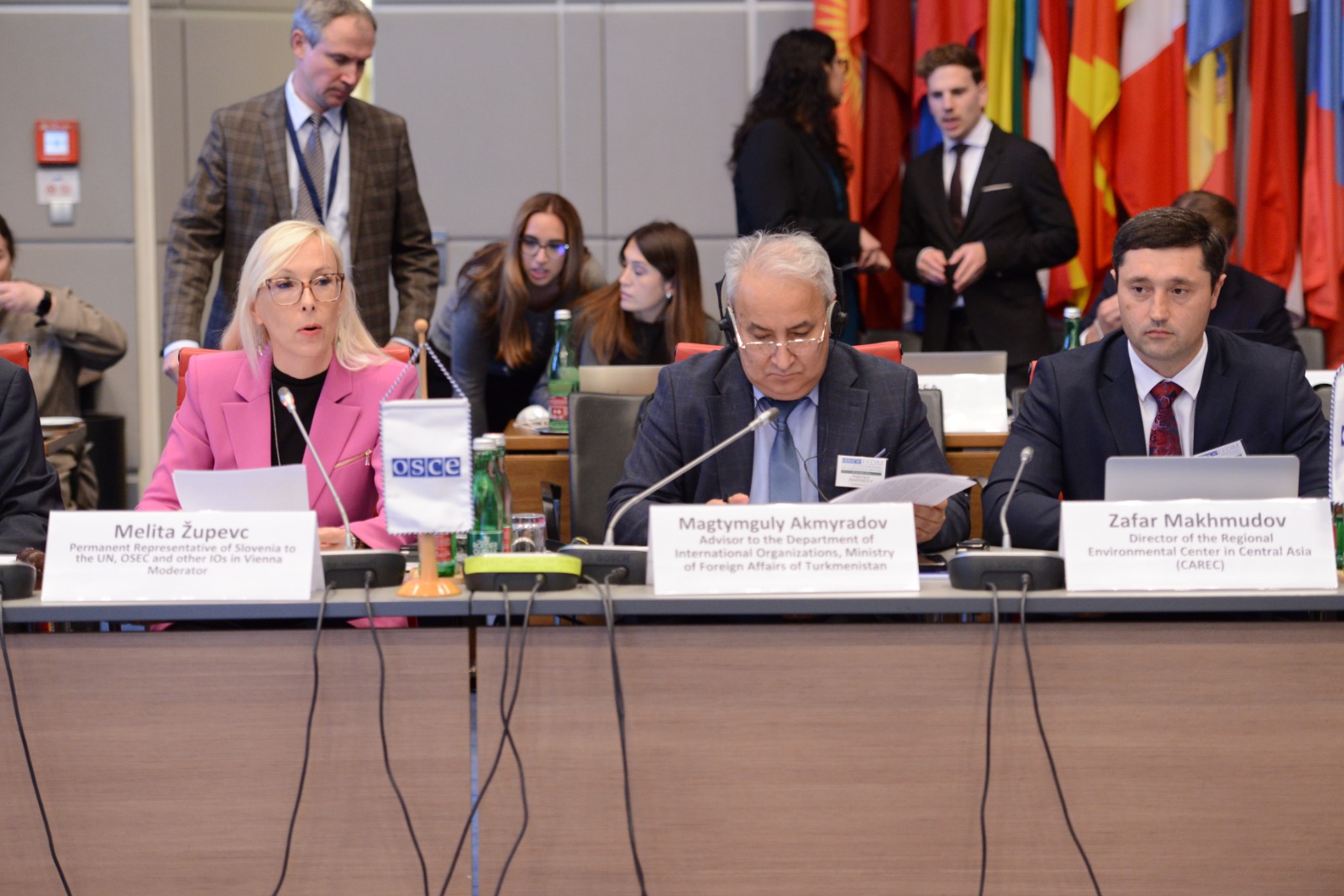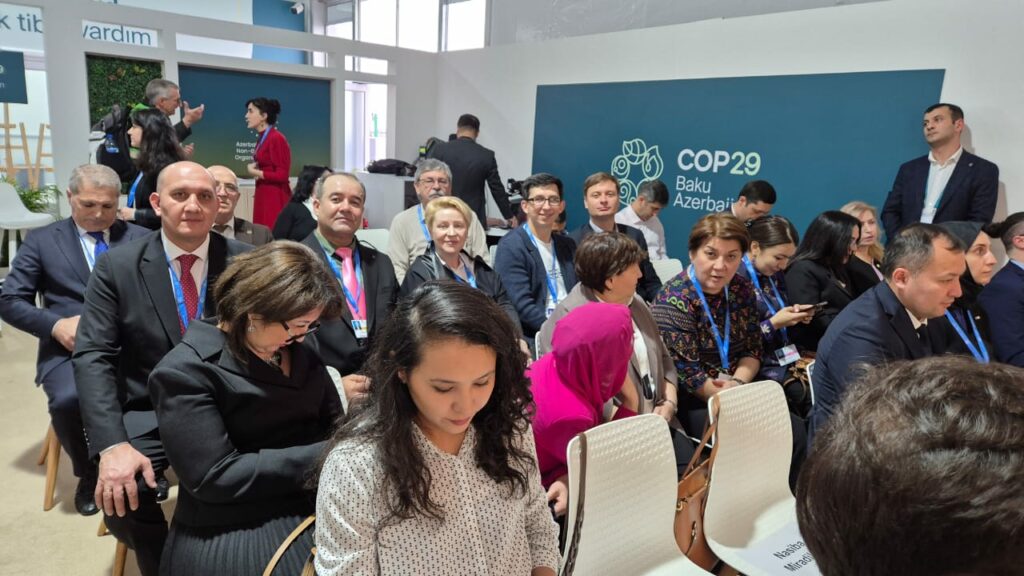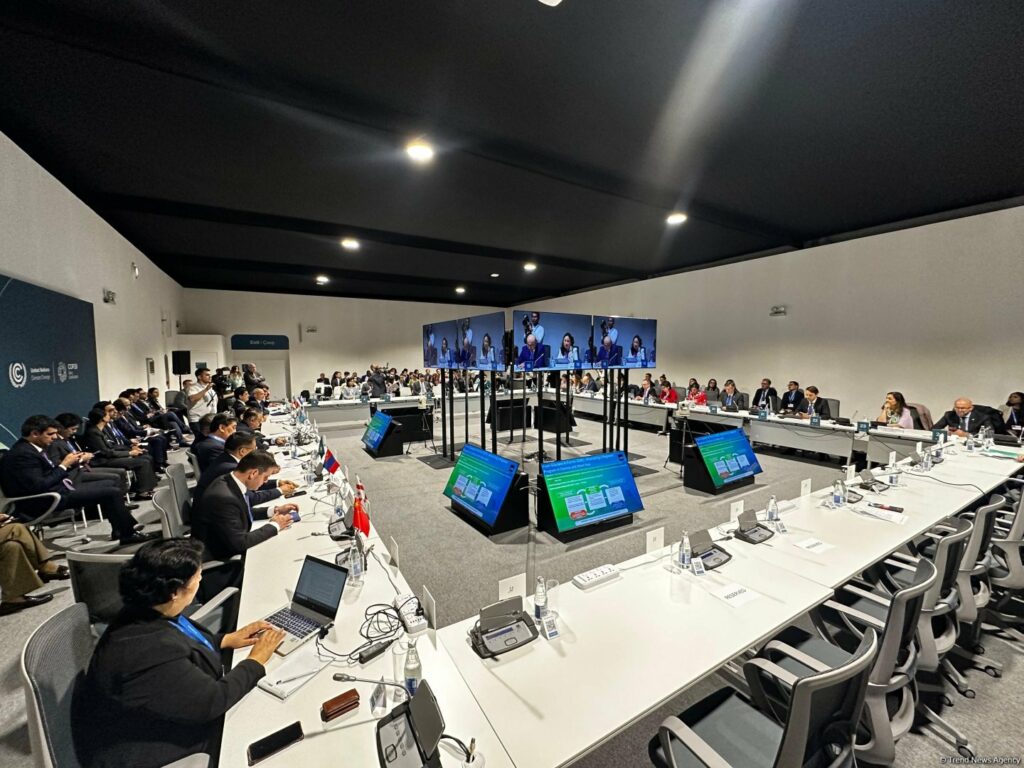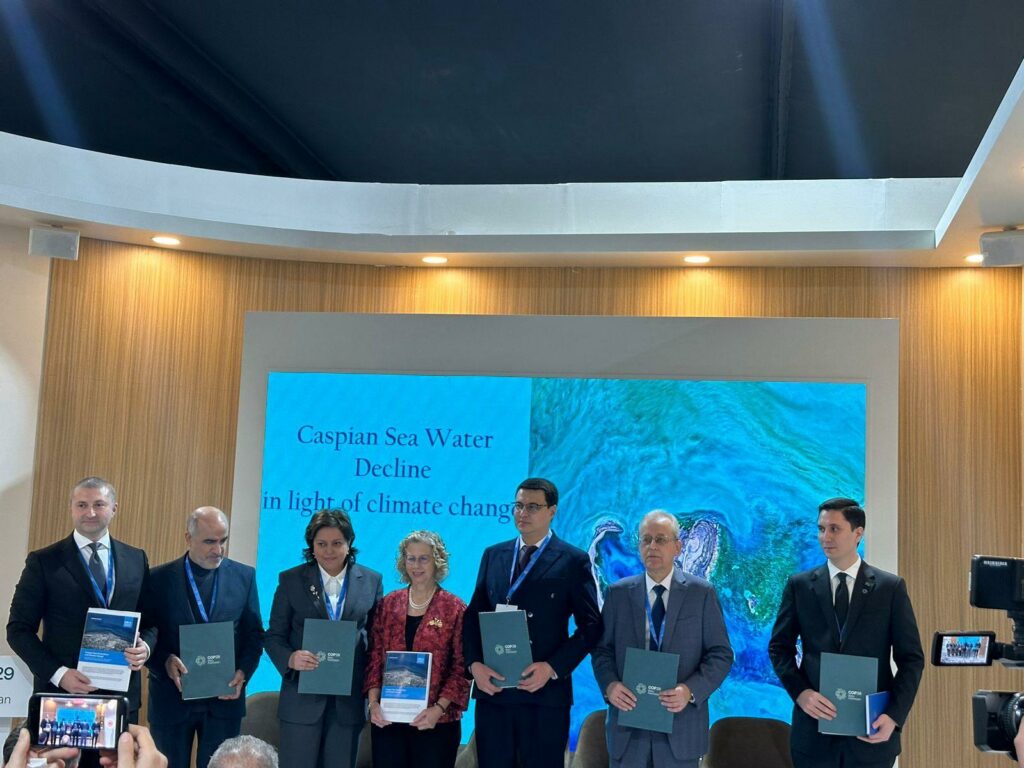With support from the OSCE and international donors, the Regional Environmental Centre for Central Asia (CAREC) has facilitated critical dialogues on managing shared water resources in the transboundary Amudarya and Syrdarya river basins. Serving over 75 million people, these rivers face severe freshwater challenges by the 2050s due to climate change and population growth. Inefficient water management could cost Central Asia up to USD 4.5 billion annually, emphasizing the need for climate adaptation through transboundary cooperation,” the CAREC Executive Director Zafar Makhmudov stated at the 2024 Economic and Environmental Dimension Implementation Meeting (EEDIM) in Hofburg, Vienna, on 29 October 2024
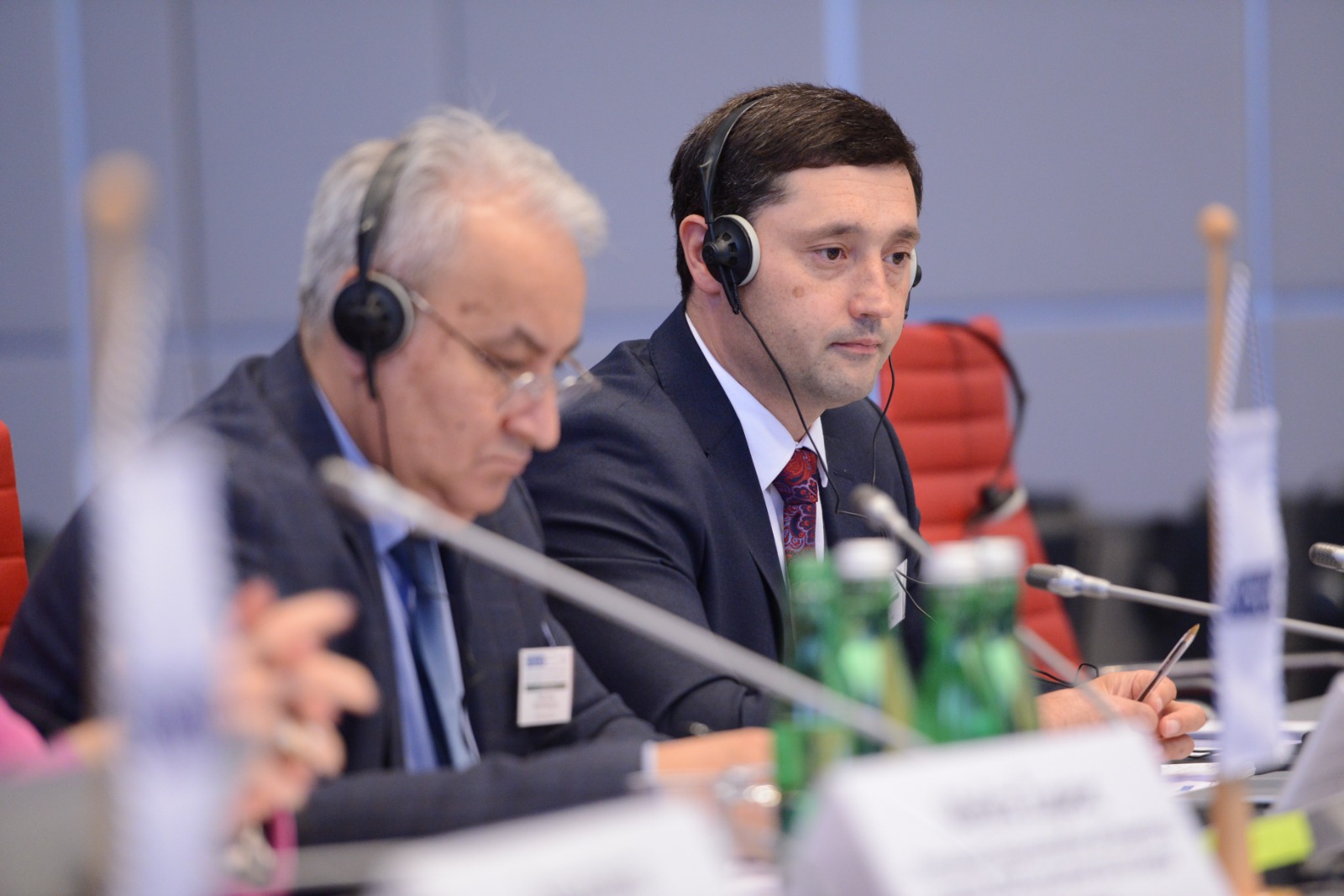
The EEDIM provides a platform to enhance dialogue and co-operation on key thematic areas within the second dimension of the OSCE. The focus of this year’s EEDIM is on water management, exploring its various roles within the OSCE framework. Discussions will highlight best practices in good governance, climate change adaptation and mitigation, and the sustainable management and conservation of water resources, including environmental protection and disaster risk reduction, across the OSCE area.
The CAREC Executive Director shared the experiences of the Regional Environmental Centre for Central Asia (CAREC) in advancing good governance, climate adaptation, and fostering dialogue across Central Asia’s transboundary basins.
Zafar Makhmudov highlighted value of the regional cooperation for Central Asia’s future.
“Since 2001, CAREC has promoted dialogue and collaboration, notably organizing the first Central Asia Pavilion at COP26 under the slogan, “5 Countries – 1 Region – 1 Voice.” At COP27, regional leaders called for greater international cooperation and green technology adoption, with COP28 aiming to strengthen Central Asia’s role in UNFCCC climate negotiations. These milestones highlight the region’s vision to build climate resilience and reduce vulnerability through a unified “better together” approach,” the CAREC Executive Director said.
According to Zafar Makhmudov, CAREC has developed the Central Asian Climate Information Platform to foster a supportive environment for transboundary cooperation on climate change.
“This platform offers stakeholders real-time water and climate data, serving as a comprehensive research and knowledge hub that aids in climate risk assessment and decision-making. Featuring analytical tools, data visualization options, and an E-Learning component for enhanced capacity building, the portal supports processes for financing and implementing collective climate adaptation actions across the region,” Zafar Makhmudov told the participants.
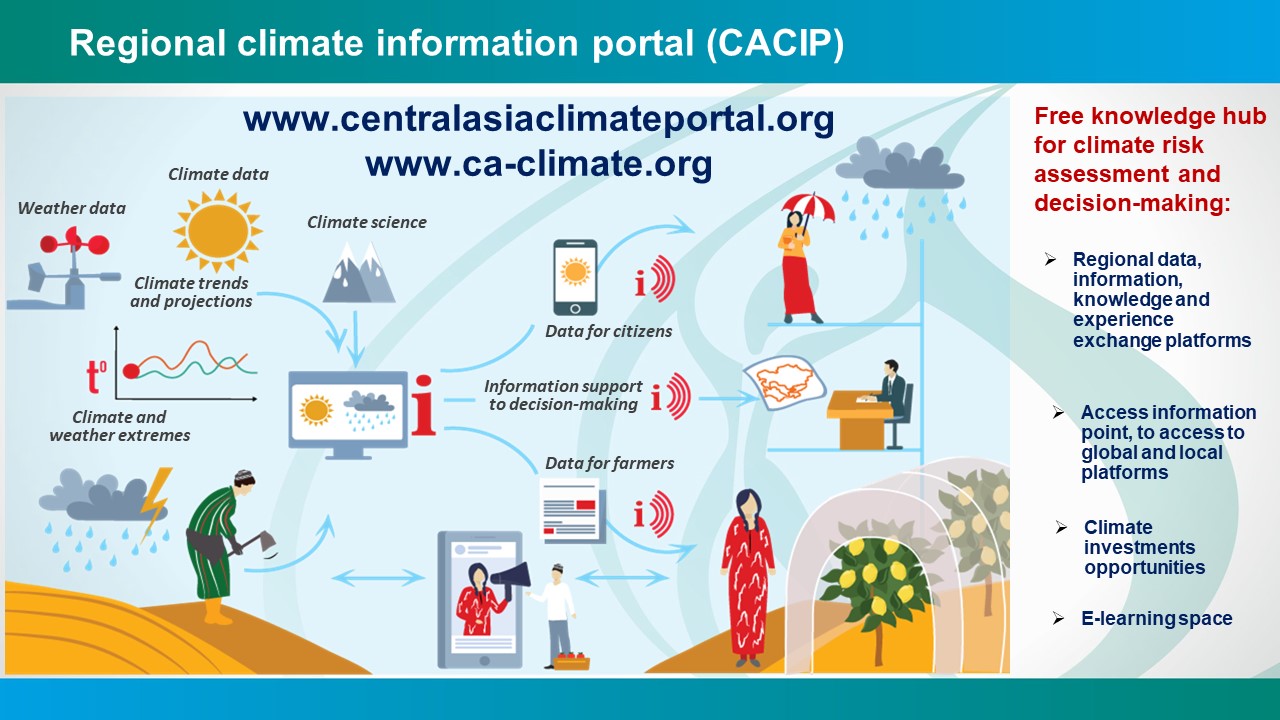
He mentioned landlocked location of Central Asia that faces significant challenges due to climate change. By the end of the 21st century, temperatures in the region are projected to rise by 2.6°C compared to pre-industrial levels, even under the most optimistic scenarios, surpassing global averages.
“This trend poses multiple environmental threats, including the rapid melting of glaciers, reduced snow cover, changes in river runoff patterns and an increase in hydrological droughts, worsening desertification, and land salinization, in addition to biodiversity loss and ecosystems degradation. Compounding these issues, the region experiences low water use efficiency and high-water stress (SDG 6.4.2), which may intensify by 2.8 times in certain areas by 2040. The growing vulnerability to climate change will exacerbate current challenges in water security, food production, and access to clean drinking water,” Zafar Makhmudov emphasized.
The CAREC Executive Director noted that Central Asian countries have committed to Integrated Water Resources Management (IWRM) for comprehensive water sector reform, establishing basin councils and river watershed management efforts.
“CAREC builds on this by proposing the division of river basins into smaller hydrological units, forming Small Basin Councils (SBCs) to foster a bottom-up, stakeholder-driven approach for integrating climate adaptation into basin plans,” said Zafar Makhmudov.
He informed that CAREC champions the Women in Water Management in Central Asia (and Afghanistan) in partnership with OSCE and the Stockholm International Water Institute (SIWI), initiative.
“This program enhances the participation of women professionals in water governance and supports gender mainstreaming in the sector. Through this network, Central Asian women engage in capacity building, inter-basin knowledge exchange, and collaborative efforts, advancing both regional cooperation and the development of women experts in water sector,” said Zafar Makhmudov.
